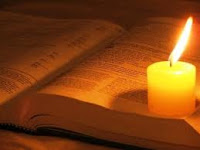Once there was a man who only survived babyhood because of a determined and clever mother, a brave sister and a God who arranged for him to be nurtured and taught his heritage in spite of the law of the land. He was adopted into the royal family and educated to be a leader. It looked like he blew it in a fit of vengeful temper, when he intervened in the beating of a slave and killed the abuser. He then ran for his own life, and apparently disappeared.
We next see him finding a well in the wilderness, after a long and arduous trek. Fortunately, the nomadic tribe who used the well were not only hospitable, but distantly related to his own original clan. And their leader worshiped the same God that our man's mother had told him about. Once again, he was adopted and educated in another way of life. Herding sheep in the wilderness was a long way from a royal palace. He didn't choose any of the three lifestyles and educations that he had found himself in, but from what we know, he learned well. but he had never had the freedom to choose his path.
The next step came from totally out of his experience--he saw a bush that was on fire but not being consumed. He'd lived in the wilderness long enough to have seen brushfires, but not like this one. God was stepping into his life. It was time to use the seemingly random pieces of his experiences. He had learned how to live as a desert nomad, with only the native plants and a herd of sheep to supply the necessities of life. He had learned the ins and outs of one of the most sophisticated kingdoms of his time. And he had learned about the God of his birth family, who now offered him a direction that not only took over his life, but changed the destiny of his people, and many more over centuries and even millenia. When he doubted his ability to speak adequately, God was ready for that with a brother, who had also been spared the political hazards of his childhood, and was a capable speaker. We see God spending eighty years preparing this man, and the next forty being a leader in a situation that he could not have dreamed of earlier in his life. Had he not had those earlier experiences, he could not have become the man God called to save and mold a nation.
As this man summed up his life, he told his people "Follow the whole way that the Lord has marked for you, and you will live, you will prosper and shall live long in the land." (Deuteronomy 5:33)We may not understand why we are put in some of the places we find ourselves, but we will find His direction for us if we follow Him.









